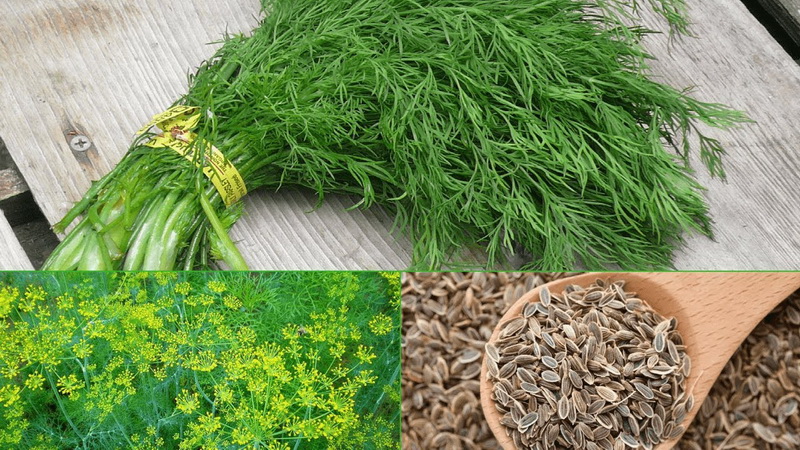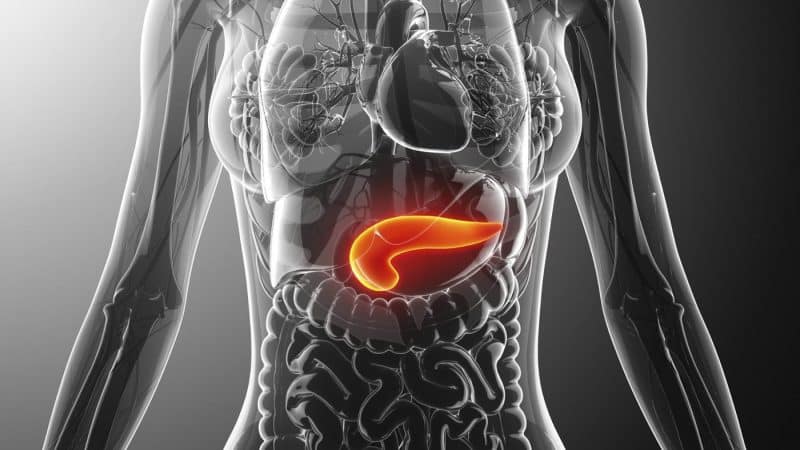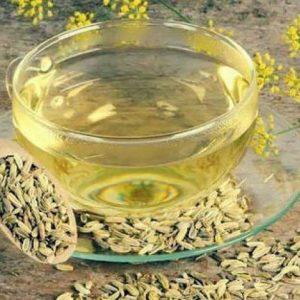How to use dill seeds for pancreatitis and why they are useful
Pancreatitis is an acute or chronic inflammation of the pancreas, leading to disruption of its exocrine and intrasecretory function. The disease manifests itself as pain in the lower abdomen, right or left hypochondrium, which intensifies after eating spicy, fatty foods, alcohol, lack of appetite, and indigestion. To reduce the load on the organ and stimulate its self-healing mechanisms, drugs with different mechanisms of action are used: dehydrating, antispasmodic, non-steroidal anti-inflammatory drugs, antibiotics as a preventive measure for infectious complications.
In addition to conservative therapy, traditional medicine recommends dill seeds for pancreatitis. Consumption of the fruits of the plant has a beneficial effect on the condition and functionality of the digestive system, in particular the pancreas, removes painful cramps in the stomach, has a choleretic and calming effect, and promotes vasodilation. In the article we will look at how dill seeds are useful for the pancreas, and when they can be harmful to health, how to properly prepare and use preparations based on seeds for pancreatitis and cholecystitis.
Dill seeds for pancreatitis
Dill (another name for common fennel) is a garden plant, widespread on all continents, growing wild in the Himalayas, North Africa, Iran, and Asia Minor. It has a strong spicy, refreshing smell.
In cooking it is used in fresh, dried and salted form, in the flowering and fruiting phase it is used for preserving vegetables. Dill seeds are popular in alternative medicine recipes. The fruits of the plant have a diverse positive effect on the body, due to which they are used to treat a wide range of diseases.
The usefulness of dill seeds for pancreatitis has been clinically proven. Due to the presence of essential oil, vitamins, beneficial micro- and macroelements, the product enhances the secretion of the digestive glands, normalizes metabolic processes, enhances the motility of the digestive tract, and acts as an antispasmodic, anti-inflammatory and sedative. To a lesser extent, it has laxative abilities.
Reference. The medicinal properties of dill are recognized by official medicine. Based on them, the domestic pharmaceutical company KorolevPharm produces Dill Water. The medicine is prescribed for diseases of the gastrointestinal tract, the need to improve intestinal function, increased gas formation in infants, and for women during breastfeeding to increase lactation.

Healing properties and principle of action
Among the main functions of fennel seeds are the following:
- antibacterial: reduce the resistance of pathogenic cells to destruction, stop putrefactive processes in the stomach and intestines;
- antioxidant: neutralize free radicals, remove toxins and reduce the flow of toxic substances into the blood, improve the general and functional condition of the liver, increase efficiency, increase the body's resistance to intoxication, injury, hypothermia/overheating;
- hypolipidemic: slow down the production of cholesterol, reduce its concentration in the blood, liver, adipose tissue, heart, suppress platelet aggregation, increase vascular elasticity;
- choleretic: enhance bile formation, promote the release of bile into the duodenum, reduce the risk of gallstone formation, enhance the motor and digestive activity of the small intestine;
- carminative and antispasmodic: inhibit the secretion of gastric juice, reduce the tone of the smooth muscles of the gastrointestinal tract, increase the motor activity of the digestive tract, promote gastric emptying, prevent the development of spasms in the esophagus, ureters and bile ducts;
- anti-inflammatory: inhibit the activity of inflammation, alleviate the severity of symptoms of pancreatitis, relieve abdominal pain, accelerate the regeneration of damaged mucosa.
Dill seeds for pancreatitis in combination with conservative therapy enhance the effect of antibiotics, antispasmodics, reduce the load on the pancreas, stimulate the organ’s self-healing mechanisms. They also reduce the need for pharmacological agents, shorten the duration of treatment, allow one to achieve stable remission, prevent complications and chronic inflammation.

Benefits and harms
Eating fennel fruits satisfies the body's need for proteins, potassium, silicon, magnesium, sodium, iron, manganese, copper, zinc, cobalt, vitamins A, B, C, E, D, K, H, PP.
Dill seeds are a source of calcium, which is important for the formation of the normal structure and composition of bone and dental tissue, the transmission of nerve impulses, and the functioning of the blood coagulation system.Regular use of the product has a positive effect on the nervous system: improves mood, normalizes night sleep, and produces a calming effect.
Traditional medicine considers dill seeds as an effective means of prevention atherosclerosis, diabetes mellitus, ischemia, bronchopulmonary disease. Dill seeds are used for increased gas formation in children, flatulence and dyspepsia in adults, and are prescribed to women during breastfeeding to improve lactation, as well as for menstrual irregularities.
Fennel fruits are recommended in the early stages of diseases of the cardiovascular system: they dilate blood vessels, improve the elasticity of vascular walls, and normalize hemodynamic processes. The seeds are useful for colds and infectious diseases of the upper respiratory tract, bronchitis without sputum production. The essential oil in the seeds irritates the secretory cells of the bronchial glands, which facilitates the elimination of bronchial mucus.
Due to the presence of plant fiber and low fat content Fennel fruits and leaves are included in the diet for obesity. Fiber cleanses the digestive tract well, activates metabolic processes, improves the functioning of the gastrointestinal tract, resulting in weight loss. An infusion of seeds is used externally as a wound healing agent for itchy skin of allergic origin.
Side effects
If the preparation technology and application scheme are followed, dill seeds are well accepted by the body. In isolated cases, negative side effects in the form of allergic skin reactions are possible.: rash, redness, itching, rash.In the case of haphazard use and in large doses, a sharp decrease in blood pressure, general weakness, malaise, nausea, vomiting, and headaches are possible.
Dill during pregnancy can cause miscarriage, as the fruits stimulate the smooth muscles of the uterus. In some cases, uterine bleeding and pain in the lower abdomen are observed.
Read also:
Treatment with natural ingredients - pumpkin and honey for the liver.
Why gray rot appears on cucumbers and how to deal with it.
Saving our tomatoes - how to pollinate tomatoes in a greenhouse.
How to use
The dosage and course of treatment are selected individually for a particular patient, taking into account the severity of symptoms, stage of the disease, and patient factors. Treatment begins with the minimum effective doses, gradually increasing them to eliminate the risk of allergies. The average dosage of decoction or tincture per day for an adult is 250 ml.
The effect of the product becomes noticeable within half an hour after administration. To achieve positive dynamics and consolidate results, it is recommended to use the product for 7-10 days. If necessary, repeat the course of treatment after a break.
Traditional medicine recipes
Fennel seeds can be purchased at the pharmacy or grown and dried yourself. To do this, when the fruits begin to ripen, cut off the inflorescences with seeds, place them upside down in a paper bag, leave for 7-10 days in a warm, dry place, avoiding direct sunlight. After time, separate the seeds from the stems and store in an airtight container. Shelf life: 24 months.
Advice. It is better to use bottled drinking or filtered water for recipes.
There are several ways to prepare dill seeds for the treatment and prevention of pancreatitis.
Decoction
1 tbsp. l. Pour 250 ml of cold water over dried dill seeds, bring to a boil in a water bath, and simmer for a quarter of an hour. Strain the cooled liquid through several layers of gauze. Adults take 4 tbsp orally. l. every 3-4 hours.
Dill seeds go well with other medicinal plants. To prepare a medicinal decoction, fennel fruits are combined with chamomile, St. John's wort, mint, celandine, hawthorn, and violet.

Infusion (dill water)
1 tbsp. l. Grind the fennel fruits in a mortar, pour in a glass of boiling water, cover with a lid, and leave to steep for 60 minutes. Drink the strained infusion half an hour before the main meal, 50 ml 3-4 times a day.
Dill seed powder
Using a coffee grinder or mortar, grind the fennel fruits to a powder, mix with honey, take ½ teaspoon three times a day with plenty of water.
Advice. It is better to chop fennel fruits immediately before cooking in order to preserve all the beneficial properties of the plant.
Is it possible to use dill for pancreatitis?
Traditional medicine recommends consuming fennel to treat and prevent inflammation of the pancreas. It has a beneficial effect on the general condition and functionality of the gastrointestinal tract, normalizes metabolism, reduces cholesterol levels, inhibits inflammatory processes, and reduces gas formation.
In combination with the main therapy, it stimulates the organ’s self-healing mechanisms, improves overall well-being, alleviates the severity of symptoms, prevents complications, and reduces the risk of chronic disease.
It is forbidden to use dill leaves and seeds as a seasoning during the acute period. The patient is shown a gentle diet, where fresh greens are included in the list of prohibited foods.
Dill seeds for cholecystitis
Inflammation of the gallbladder occurs when the movement of bile is impaired due to blockage of its outflow. Since fennel fruits have a diuretic and carminative effect, they are recommended to be included in the treatment regimen for cholecystitis, as an addition to conservative therapy.
Dill will be most useful in the chronic version of the disease. With its help, you can achieve stable remission, slow down the progression of the disease, and get rid of pain.
Contraindications
The consumption of fennel fruits is contraindicated for people with hypersensitivity to the product, intestinal atony (lack of tone of the smooth muscles of the organ).
Relative contraindications include diseases and pathological conditions such as:
- gastritis with high acidity;
- low pressure;
- pregnancy;
- bleeding disorders;
- the formation of large stones in the kidneys, gall bladder or bile ducts;
- Gastrointestinal pathology in the acute stage.
Conclusion
There are different reviews about the effectiveness of treating pancreatitis with dill seeds. Mostly, patients talk about the positive effect of fennel on the digestive system and the general condition of the body.
Despite all its usefulness, dill fruits should be considered as an effective auxiliary or preventive remedy for diseases of the gastrointestinal tract. For a favorable outcome of the disease, well-chosen conservative therapy is important, and only then, as a supplement, traditional medicine recipes.